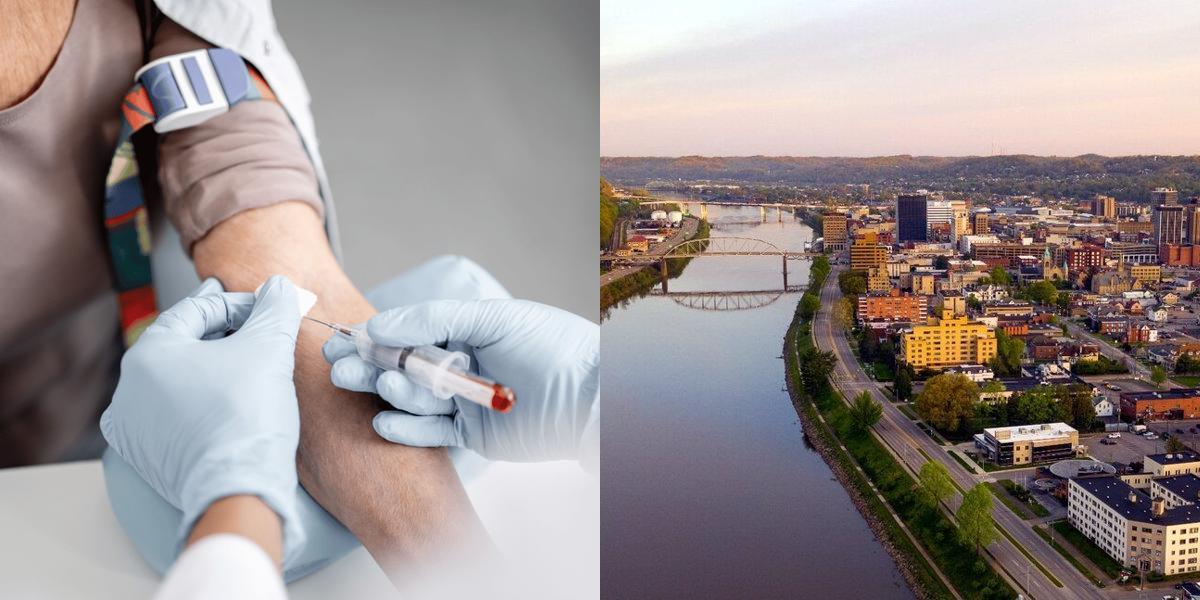How to Become a Phlebotomist in West Virginia

A phlebotomist is a crucial healthcare professional trained to draw blood for medical testing, donations, and transfusions. With growing demand in the healthcare industry, becoming a certified phlebotomist in West Virginia is an excellent way to start a stable and rewarding career with minimal training time.
Key Points
- A phlebotomist is a professional trained to collect blood samples for medical testing and transfusions, playing a crucial role in diagnosing and treating patients.
- To become a phlebotomist in West Virginia, you must complete an accredited training program and pass a national certification exam.
- Phlebotomy training programs typically take 4 to 8 months to complete.
- In West Virginia, the average phlebotomist salary is $37,260 per year ($17.91 per hour).
- Phlebotomy certification is required in West Virginia through recognized agencies like ASCP or NHA, and some employers may require a background check.
5. Apply for Jobs and Start Your Career
Once you’ve earned your phlebotomy certification, it’s time to start your job search. Phlebotomy job opportunities are available in various healthcare settings, including hospitals, outpatient clinics, blood donation centers, and medical laboratories. To find openings that match your qualifications, explore job search platforms like My Next Move, local job boards, and healthcare career websites.
For a comprehensive guide on launching your phlebotomy career anywhere in the U.S., check out our detailed resource on the certification process, job outlook, salary expectations, and career pathways. This guide provides everything you need to know to take the next step toward a successful and rewarding career in phlebotomy.
Where to Find Phlebotomy Classes in West Virginia?
If you're looking for phlebotomy classes in West Virginia, Dreambound is the top platform to find and compare vocational training programs.
With both in-person and online options, Dreambound connects you with accredited phlebotomy training programs! By visiting Dreambound, you can explore programs and choose the one that best fits your schedule and career goals.
Career Paths and Opportunities
A phlebotomy certification opens doors to many healthcare careers, including:
- Medical Laboratory Technician (MLT): Advance into lab testing and diagnostics.
- Blood Bank Technician: Work in donation centers and transfusion labs.
- Phlebotomy Instructor: Teach future phlebotomists in training schools.
- Nursing (LPN/RN): Transition into patient care roles with further education.
- Clinical Research Coordinator: Assist in medical studies and drug trials.
Frequently Asked Questions
How long does it take to become a phlebotomist in West Virginia?
4 to 8 months, depending on the training program.
How much does a phlebotomist make in West Virginia?
The average salary for a phlebotomist in West Virginia is $37,260 per year ($17.91 per hour) based on the Bureau of Labor Statistics (BLS).
What qualifications do you need to be a phlebotomist in the U.S.?
You need a high school diploma/GED, complete a training program, and pass a certification exam from ASCP or NHA.
What is the shortest time to become a phlebotomist?
4 months through an accelerated phlebotomy course.
Final Thoughts
Becoming a phlebotomist in West Virginia is an excellent entry point into the healthcare industry, offering quick training (less than a year), job security, and opportunities for career advancement.
With short training programs and high job demand, phlebotomy is a great choice for those interested in patient care and medical laboratory work.
Start your journey today with Dreambound, the top platform for finding vocational training programs in West Virginia.

Athena is Co-founder and CEO of Dreambound.



